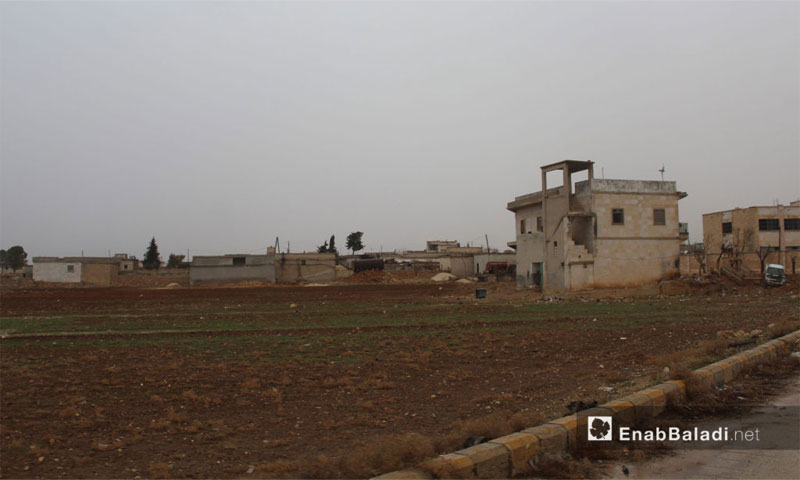Enab Baladi – Aleppo Countryside
The pace of reconstruction and rehabilitation in the northern countryside of Aleppo has increased in the recent days. In fact, the investment in large economic projects by the residents of the region and some of the displaced people from other Syrian provinces reached a step considered by some as a completion of the safe area announced after the expulsion of ISIS.
Investment projects are mainly concentrated in the major cities of north Aleppo, including Azaz, as well as the towns that witnessed displacement and trade movements, such as Suran and Jarabulus.
The park of the city of Azaz, “Abu Ali Amouri,” was the starting point of the investment projects. It was inaugurated several weeks ago to become the largest park in the northern countryside and a place frequently visited by parents and young people in search “for rest and recreation,” after years of ongoing fighting in the region.
Residential Projects … Apartments
The projects that were launched by the citizens of Aleppo countryside are not limited to parks and restaurants, as residential projects became widespread in most of the towns, especially with the increasing numbers of displaced people to the region.
Azzam Ahmed, from the town of Suran and owner of a residential project in the countryside of Aleppo, said: “We noticed that most of the people of the area are buying real estate and land in order to build houses that would guarantee them some stability. This pushed us to buy a 1000 square meters land and to build a four-storey building on it. Each storey is composed of four apartments allocated for investment.”
“All of the apartments and shops on the ground floor have been sold,” he said, adding that “the sale, purchase and reconstruction movement has never been witnessed before in the region. This is due to the restriction of the area and because most of the displaced people are heading towards this region, especially from Aleppo and from the eastern regions because of the regime’s control over many parts of the eastern countryside.”
“These housing projects guarantee stability for our displaced people, especially that the area is safe, free of aerial bombardment and provides many job opportunities,” he said.
In late 2016, the cities and towns of the northern countryside of Aleppo received a large number of refugees and displaced people from other Syrian regions, such as Homs, Damascus and Idlib, given its “safety.” In reality, it is secure since it became controlled by the “Free Army” factions after the exclusion of ISIS, in addition to the security measures taken by the Turkish Government in cooperation with local civil institutions and the Syrian Interim Government.
A number of capitals originating from the area are gradually returning to it, encouraged by the existence of a climate that ensures the stability of their projects.
A Way to Move the Economy Forward
In a poll carried out by Enab Baladi in the region regarding civilians’ perceptions about these projects, Ali al-Ahmad believes that the new investment projects are an employment opportunity on the one hand, and a way to improve the economy on the other. It is also an attempt to “restore what was destroyed by al- Assad and Baghdadi gangs.”
He considered also that “commercial investment is the best type that can be actually realized, given the urgent need for housing due to the large number of displaced people in the region, which is likely to increase in the coming period.” But he stressed that “investment operations must be controlled by the concerned parties so as not to let greedy individuals exploit people’s needs.”
A number of local councils in the region have issued several decisions related to the construction movement and have obliged entrepreneurs to obtain official licenses from the council offices.
Mahmoud Haider said that “these projects are improving the commercial and economic life in the region,” revealing his desire to open a printing project that would completely cover the needs of the region.
He confirmed al- Ahmad’s view that it is an opportunity to provide job opportunities for a number of young people, noting that “the liberated areas are in an urgent need for these productive projects, because they have become besieged by QSD and the regime.”
